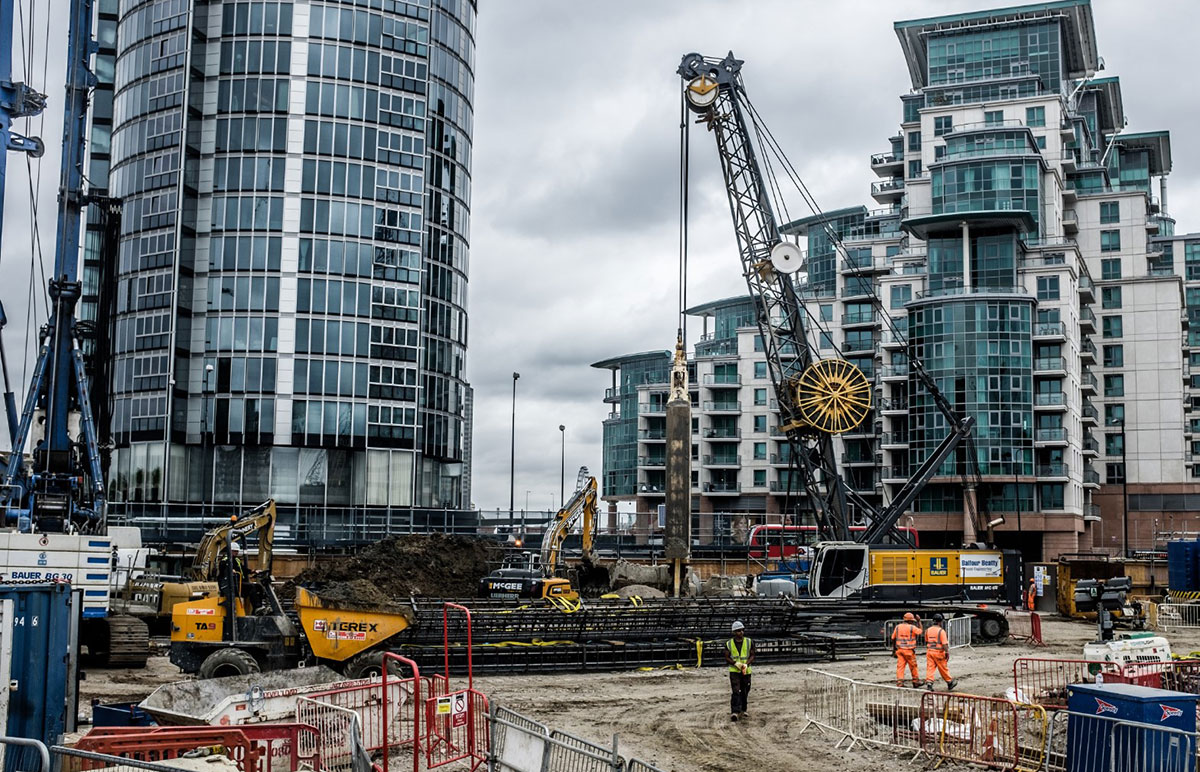Our Geotheta Statements
The Geotheta PDFs
Table of ContentsGeotheta for BeginnersThe Buzz on GeothetaSee This Report about GeothetaThe 20-Second Trick For GeothetaThe Only Guide to Geotheta

They perform site investigations, accumulate samples, do research laboratory tests, and analyze information to review the viability of the ground for building projects - Tailings Engineer. Based on their findings, geotechnical designers offer referrals for foundation design, incline stability, maintaining frameworks, and mitigation of geotechnical hazards. They work together with other professionals, such as designers, architectural engineers, and building and construction groups, to make certain that geotechnical factors to consider are integrated into the general job layout and application
By assessing the actions and properties of dirt and rock, they can determine prospective geotechnical hazards such as landslides, soil settlement, or slope instability. Their competence assists avoid failures or crashes that can threaten lives and building. Right here are some thorough obligations and obligations of a geotechnical designer: Website Investigation: Geotechnical engineers conduct website examinations to gather data on subsurface problems.
They analyze the data to understand the residential properties and actions of the dirt and rock, including their toughness, leaks in the structure, compaction features, and groundwater conditions. Geotechnical Analysis and Design: Geotechnical engineers analyze the data collected throughout website examinations to analyze the security and viability of the site for building jobs. They carry out geotechnical calculations and modeling to assess factors such as bearing ability, negotiation, incline security, lateral earth pressures, and groundwater circulation.
Geotheta for Dummies
Structure Style: Geotechnical designers play an important role in designing structures that can safely sustain the designated framework. They analyze the soil problems and load demands to determine the ideal structure kind, such as shallow structures (e.g., grounds), deep foundations (e.g (http://prsync.com/geotheta/)., piles), or specialized techniques like dirt enhancement. They consider factors such as negotiation limitations, birthing ability, and soil-structure communication to create optimal structure styles
They assess building strategies, display website tasks, and conduct area inspections to confirm that the design recommendations are followed. If unexpected geotechnical problems develop, they evaluate the situation and offer referrals for remediation or changes to the design. Danger Assessment and Mitigation: Geotechnical engineers assess geotechnical risks and threats related to the project website, such as landslides, liquefaction, or soil disintegration.

Collaboration and Interaction: Geotechnical designers work carefully with other experts entailed in a project, such as designers, architectural designers, and building groups. Efficient communication and collaboration are important to incorporate geotechnical factors to consider into the total job layout and building procedure. Geotechnical designers offer technological expertise, response questions, and make sure that geotechnical requirements are fulfilled.
Geotheta - Truths
Here are some kinds of geotechnical engineers: Foundation Designer: Structure engineers concentrate on making and examining foundations for frameworks. They analyze the soil problems, tons needs, and website qualities to figure out one of the most appropriate structure kind and design, such as superficial structures, deep foundations, or specialized methods like heap foundations.
They evaluate the factors influencing slope stability, such as soil properties, groundwater problems, and incline geometry, and create approaches to avoid incline failings and alleviate dangers. Earthquake Engineer: Earthquake engineers focus on evaluating and creating frameworks to stand up to seismic forces. They evaluate the seismic danger of a site, assess dirt liquefaction possibility, and establish seismic style criteria to ensure the safety and strength of frameworks during earthquakes.
They execute area testing, accumulate samples, and assess the accumulated data to define the dirt buildings, geologic developments, and groundwater conditions at a website. Geotechnical Instrumentation Designer: Geotechnical instrumentation engineers concentrate on tracking and measuring the actions of soil, rock, and structures. They mount and preserve instrumentation systems that monitor variables such as soil negotiation, groundwater levels, incline motions, and structural variations to evaluate efficiency and offer early cautions of potential problems.
8 Simple Techniques For Geotheta
They carry out examinations such as triaxial tests, combination examinations, direct shear tests, and leaks in the structure tests to gather information for geotechnical evaluation and style. Geosynthetics Designer: Geosynthetics engineers focus on the layout and application of geosynthetic products, such as geotextiles, geogrids, and geomembranes. They use these products to boost soil stability, enhance slopes, supply water drainage services, and control disintegration.
They tend to be investigative individuals, which implies they're intellectual, introspective, and curious. They are curious, methodical, logical, analytical, and logical. Some of them are also social, implying they're kind, generous, cooperative, client, caring, useful, empathetic, tactful, and pleasant - Geo Tech Engineering.
In the office setting, geotechnical designers use specialized software application tools to execute computations, produce designs, and assess information. They prepare reports, review project specifications, connect with clients and staff member, and coordinate project activities. The office setting supplies a helpful atmosphere for research, evaluation, and partnership with other specialists associated with the project.
Some Known Questions About Geotheta.
They regularly go to task sites to perform site investigations, assess geotechnical problems, and collect data for analysis. These gos to entail traveling to different areas, occasionally in remote or challenging surfaces. Geotechnical designers may do dirt sampling, conduct tests, and screen construction tasks to guarantee that the geotechnical facets of the job are being applied correctly.
Geotechnical engineers additionally work in specialized geotechnical labs. In these centers, they conduct experiments, do examinations on dirt and rock samples, and examine the design residential properties of the products. Geotechnical research laboratory engineers function extensively in these environments, dealing with testing tools, running tools, and recording data. They work together with various other research laboratory team to ensure accurate and trustworthy screening outcomes.